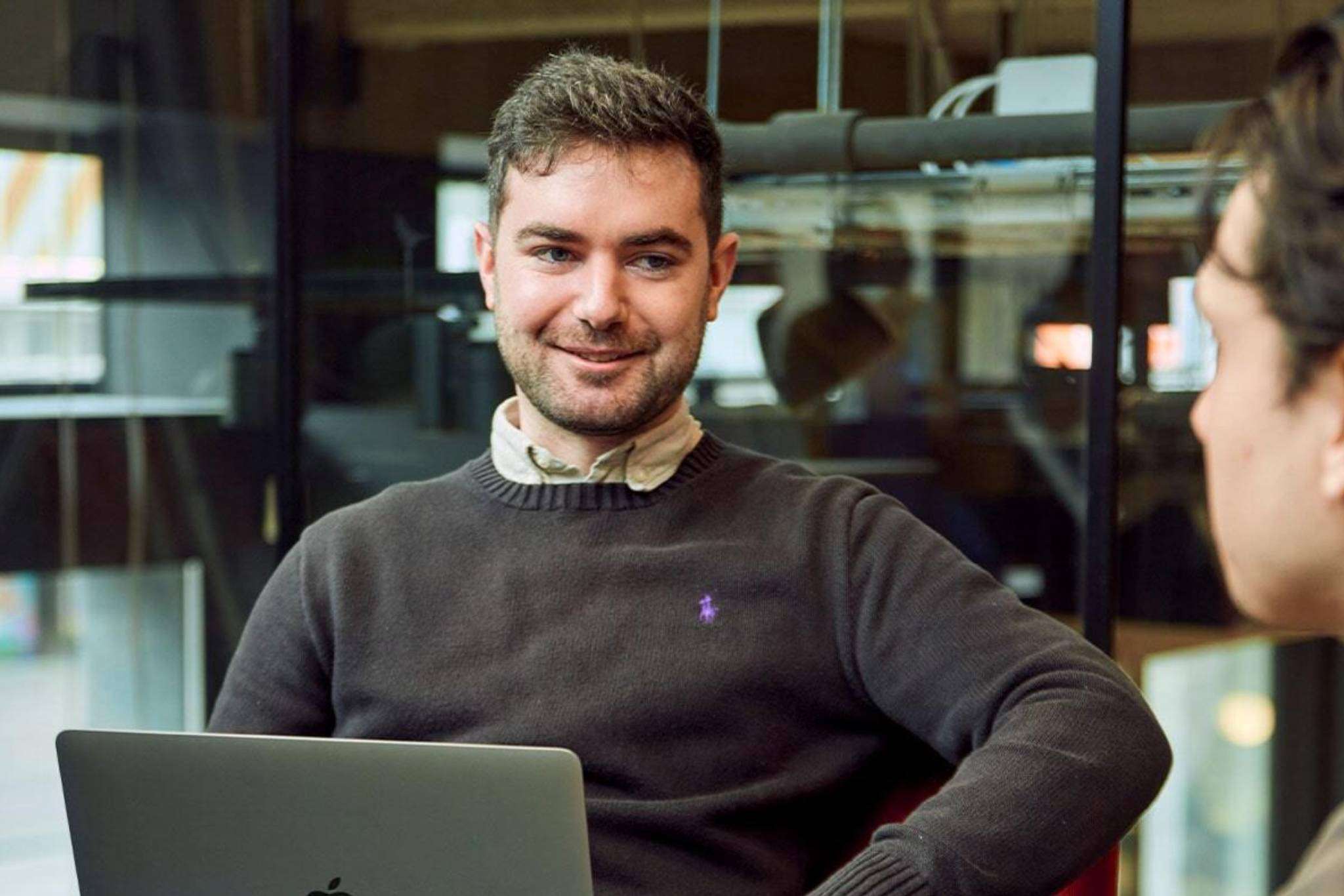How a performance manager strengthens you as a manager

As a manager, you want to guide your talent well. Whether someone is just starting out or has years of experience. The reality is that your agenda is full. And especially during periods of growth, change or increased responsibility, development requires attention. That is where we step in. Our performance managers support professionals and ease the load for you as a manager. Together, we create workplaces where talent thrives and grows sustainably.
The role of the performance manager
When a professional joins your team through us, we assign a performance manager. This applies to juniors, mediors and seniors.
Each professional receives guidance tailored to their career stage. We support juniors in their transition into the workplace. We coach mediors on ownership and positioning. We help seniors further strengthen their leadership and impact.
Effective development requires time and focus. And that is exactly what many managers are short of. Agendas are full and results often take priority. Especially for juniors, intensive guidance is crucial. The faster someone feels secure, understands expectations and learns how to apply feedback, the faster they find their place within the team.
Our performance manager speaks with the professional on a monthly basis. We discuss progress, ambitions and development goals. In the first phase, we work closely with you as the line manager to ensure a strong landing and a confident start.
You see the impact in practice. Professionals who receive structured guidance grow faster, take ownership earlier and stay connected to the organisation longer.
What does this mean for you as a manager?
Every three months, we organise a quarterly review with you and the professional. We share our insights on soft skills development, positioning within the team, ambitions, growth potential and any emerging challenges.
This gives you clarity and oversight, without having to monitor everything yourself.
Our performance managers coach on themes such as communication, personal effectiveness, leadership, collaboration, managing workload and professional visibility.
The result is professionals who find their place more quickly, communicate more clearly and show stronger ownership. That development directly translates into better performance and stronger team dynamics.

Recognising and strengthening talent
We have a clear signalling role. When things go well, we look together at how someone can continue to grow. This may involve training, certifications or further in-depth development.
Within Finance, Risk, Data and IT, we support professionals with programmes such as FRM, CFA or specialised data and IT certifications. Development is always aligned with both the professional’s ambitions and your organisation’s needs.
If performance or wellbeing declines, we act early. We discuss workload, collaboration or personal factors that may influence performance.
We are not psychologists. We are development partners.
Within the work context, we provide guidance where possible and advise when additional support may be appropriate.
This prevents important signals from being overlooked.
Understanding generations and expectations
Effective guidance requires a tailored approach. Each generation brings its own expectations to the workplace. Some professionals seek structure and clarity. Others value autonomy and acceleration. At the same time, the labour market continues to evolve. Work-life balance, flexibility and meaningful work increasingly influence career choices.
Our performance managers work with these dynamics every day. We recognise patterns, translate signals and help you align your leadership approach accordingly. This reduces misunderstandings and strengthens collaboration.
Bridging cultural differences
Teams are becoming increasingly international. That enriches the workplace and calls for conscious leadership. Cultural background influences how someone receives feedback, takes responsibility or positions themselves within a team.
We guide professionals in understanding the Dutch work context and what is expected in terms of communication, collaboration and ownership. At the same time, we advise you as a manager on cultural dynamics within your team and how to navigate them effectively.
This reduces friction, strengthens collaboration and builds bridges between perspectives. The result is greater mutual understanding and a stronger team.
Performance that moves with growth
Our programme aligns with every career stage and strengthens professionals in their development. Together, we build teams that perform sustainably at a higher level.



